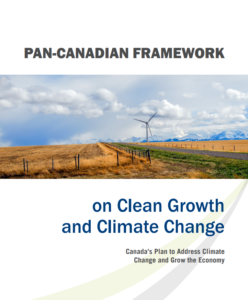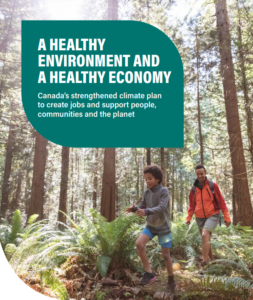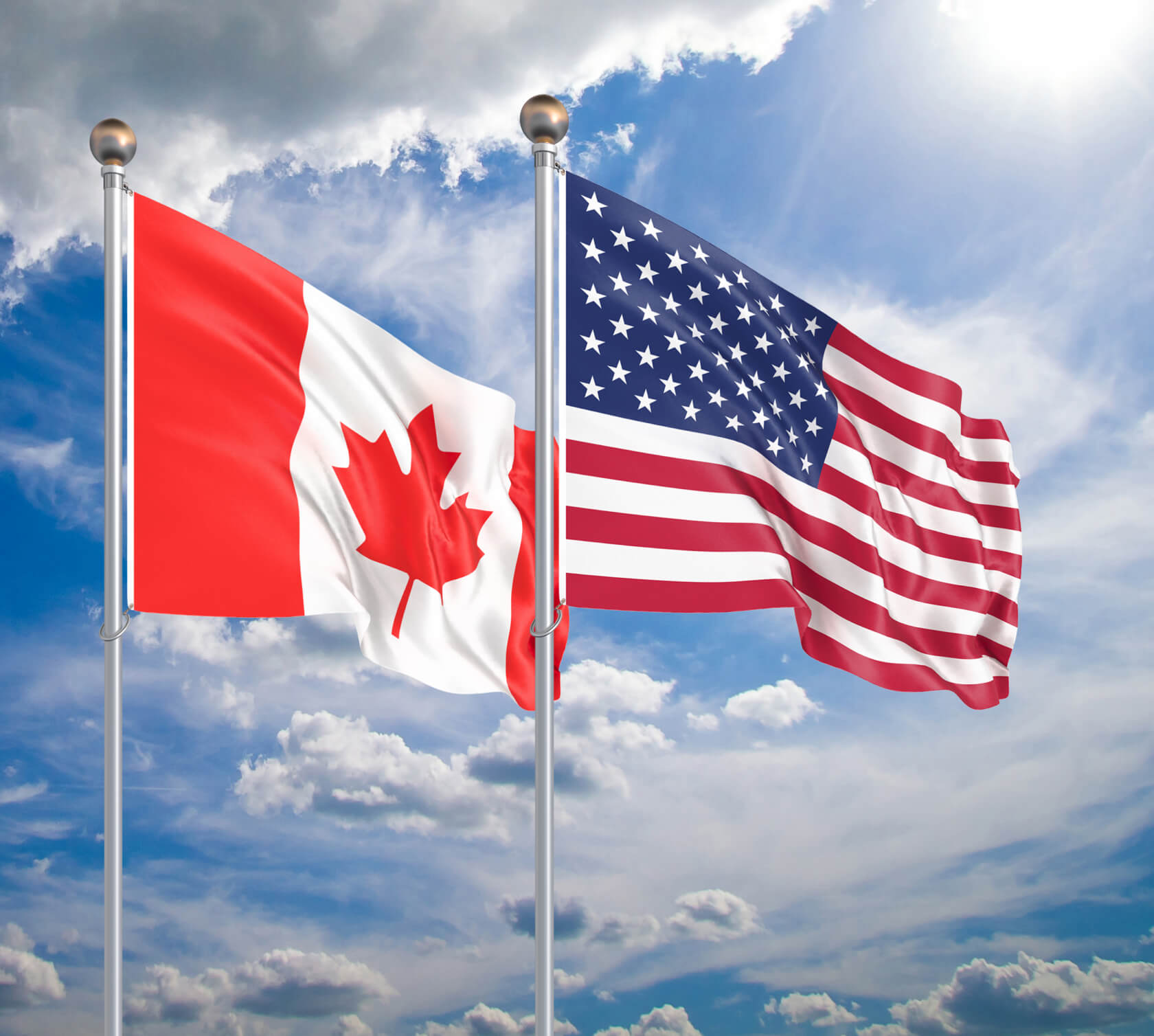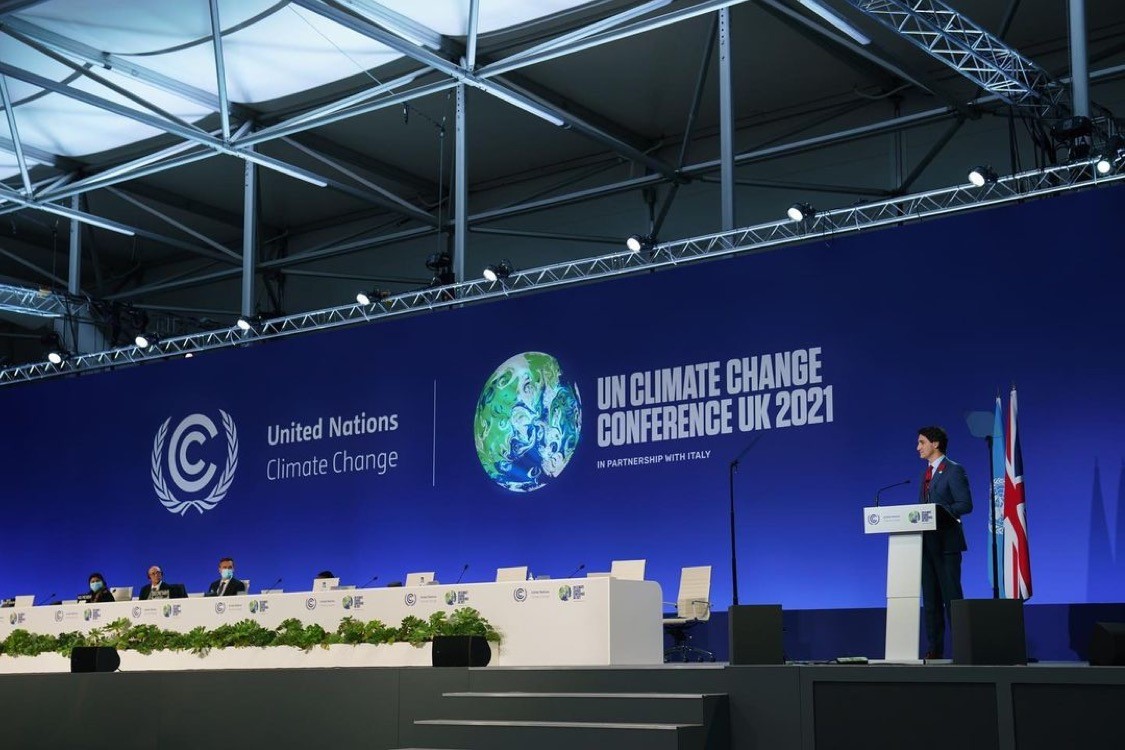
Canada is Committed to Combating Climate Change
Climate Change Leadership Conference Virtual Booth

Climate Change Leadership Conference Virtual Booth

Earlier this year, Prime Minister Trudeau announced Canada’s new Nationally Determined Contribution (NDC) under the Paris Agreement on climate, committing to reduce greenhouse gas emissions by 40-45% of 2005 levels by 2030. To achieve this target, Canada is taking bold action to reduce our emissions and green our industries while continuing to grow our economy at home and in partnership with the U.S.
Since 2019, every province and territory in Canada has had a minimum $20 per tonne price on carbon. That price is currently $40 per tonne and is set to increase every year, reaching $170 per tonne by 2030. We have committed to cut methane emissions from the oil and gas sector by 75% – and across our entire economy by 30% – by 2030. We have also mandated new zero-emission vehicle targets, established strong energy efficiency standards for buildings and appliances, and are investing heavily to develop and scale up new clean energy technology. Eighty percent of Canada’s electricity already comes from non-emitting sources and we are working to raise that figure to 100% by 2035, including by phasing out coal-fired electricity generation across the country. And we are taking ambitious action to conserve our natural environment and invest in nature-based solutions, through commitments to preserve 30% of our lands and oceans by 2030 and a plan to plant 2 billion trees. This year, Canada’s Parliament passed new legislation to hold the government accountable to its climate commitments, by incorporating our Paris Agreement targets into national law.
In 2016, the Government of Canada released the Pan-Canadian Framework on Clean Growth and Climate Change. Developed in collaboration with provinces and territories and through engagement with Indigenous peoples, it lays out a plan for how we will meet our emissions reduction targets, grow the economy, and build resilience to a changing climate.
In 2020, the Government issued Canada’s strengthened climate plan, A Healthy Environment and a Healthy Economy, which seeks to build on the progress made under the Pan-Canadian Framework.


But Canada is not alone in our efforts. We are working closely in partnership with the U.S. to advance climate action on a number of fronts. Climate is one of the key pillars of the Roadmap for a Renewed U.S.-Canada Partnership, agreed to by Prime Minister Trudeau and President Biden in February 2021. Under this framework, our two countries are working together to align our policy approaches on issues such as methane emissions and zero-emission vehicles, climate-related financial risk disclosures and renewable energy storage. Through initiatives such as the High Level Ministerial Dialogue on Climate Ambition and a revitalized memorandum of understanding on clean energy cooperation, we are partnering closely to help build a cleaner future.



Prime Minister Trudeau announces enhanced and ambitious climate action to cut pollution at the COP26 summit | Prime Minister of Canada (pm.gc.ca)
Prime Minister Trudeau concludes productive United Nations Climate Summit. | Prime Minister of Canada (pm.gc.ca)
Canada played a critical role in developing a Climate Finance Delivery Plan, demonstrating how and when developed countries will meet the US$ 100 billion goal.
Canada joined the U.S. and E.U. as a signatory to the Global Methane Pledge.
Canada and the US, along with many other countries, committed to align international public support towards the clean energy transition and phase out of unabated fossil fuels.
“Tackling the climate crisis will take all of us. Together, the global community needs to accelerate new and bold approaches to fighting climate change and building cleaner economies. Canada is committed to working with our partners to take strong climate action, create the middle class jobs of the future, and build a healthier world for our children and grandchildren.”
– Rt. Hon. Justin Trudeau, Prime Minister of Canada




